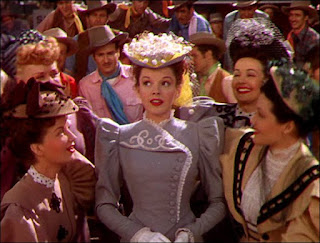I have to admit, before I bought this book I'd never heard of Sylvia Townsend Warner. Retrospective research tells me she was a regular writer of novels, short stories and poems in the early-to-mid twentieth century. She was also a confirmed lesbian, living with poet, Valentine Ackland, until death parted them. That's the brief biographical sketch out of the way.
Summer Will Show is a sumptuous novel. The best way I can find to describe Warner's writing style in this particular book is that she has the eye of Charles Dickens and the flow of Edith Wharton. The two marry up quite well. While a small but diverse cast of characters appear through the novel, Warner manages to individualise them in a way that reminds me unavoidably of Dickens. The worst thing is, I can't pinpoint why! It's probably her eye for important detail, her method of filling the cracks with what should be known as opposed to what needs to be known. When I say that Warner flows in a manner similar to Edith Wharton, I mean it as a wholehearted compliment: I've found Wharton to be one of the most deceptively simple authors to read in literature.
The basic plot is this: Sophia Willoughby lives alone with her children in England as her husband, Frederick, and his mistress, Minna, enjoy life together in France. Sophia is content with her existence until her children die from smallpox. Then she follows Frederick back to France with the vague idea of having another child with him before leaving him to his own devices. However, she stumbles upon Paris as revolution takes hold and finds herself in an unlikely partnership with Minna as Frederick retreats to safety. The novel trundles along to its climax which, although almost inevitable, still leaves a powerful sensation behind it.
One review I read suggested that the anti-Semitism and racism within the novel was greatly off-putting. I won't lie, it can be a tricky read if you're not used to it. However, you have to remember that the novel is set in 1848. As a connoisseur of Victorian fiction, the discrimination didn't bother me so much. It's a representation of the times and to ignore it would remove realism from the book. Another criticism seemed to be Sophia's attitude towards Minna, which is derogatory even as their relationship progresses. I would argue that it's a good representation of character and shows the difficulty of shedding prior opinions after getting to know someone. But it's also actually refreshing - Sophia recognises the negative qualities of Minna as much as she recognises that their lives are now inexorably entwined.
A warning here: anybody looking for explicit lesbianism within this novel will be disappointed. Remember, it was written in 1936, not exactly a flowering period in the acceptance of homosexuality. However, the signs are definitely there. The odd kiss is mentioned, the fact that Sophia and Minna share a bed is made clear. Perhaps one of the greatest qualities of this book is that it demonstrates a connection between the two women without saying anything overly inflammatory which would've hurt the publication of the book. You're forced to read between the lines and, with Warner's luscious prose, it's not a chore to need to do that.
There is one practical point for readers which I feel I should mention. The novel is just over three hundred pages long and split into five parts. However, within the parts there are no breaks, just continuous prose. As someone who pauses a lot when reading I found this difficult to engage with, especially because I desperately wanted to carry on reading. I understand the logic in relation to this particular novel: everything is interconnected and the flowing prose gives the impression of life drifting by. It's overall a very absorbing text, but that may not be a great thing if you've got something else to do!
A couple of my favourite scenes, just to finish. The novel opens with Sophia taking her children to be hung by their ankles over a kiln in the belief that it will heal their ills. However ridiculous that concept may seem now, the scene is bizarre, intimidating and beautifully crafted. Later, during her first meeting with Minna, Sophia hears a story about her hostess's childhood in Lithuania. The vividness of that tale would've made the book worth reading had nothing else stood out. As it is, though, I can barely find fault with it.
I do believe some people would struggle with the style and the fact that so much happens so quickly. Admittedly, this book isn't for everyone. Even so, I can't wait to read it again. I get the feeling that I'll enjoy it even more the second time around.
This book was read for the LGBT Book Challenge 2011 (see sidebar for details).
Summer Will Show is available
here.
Learn more about Sylvia Townsend Warner
here.





